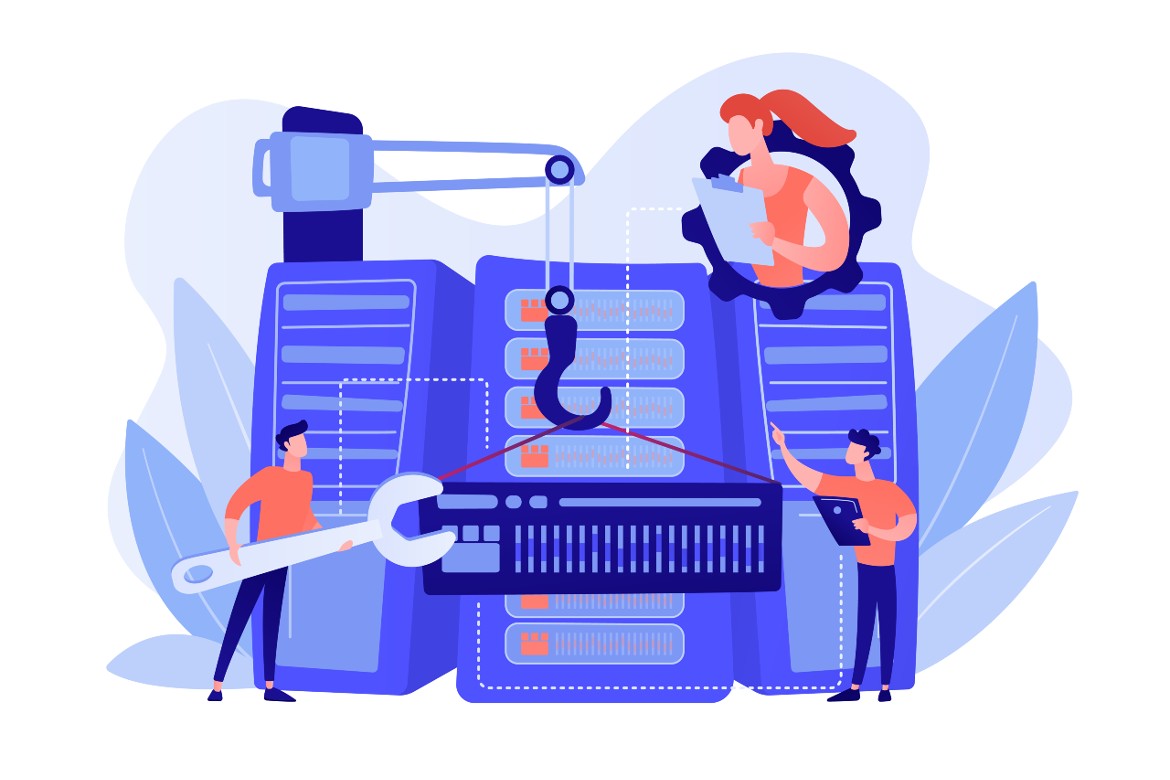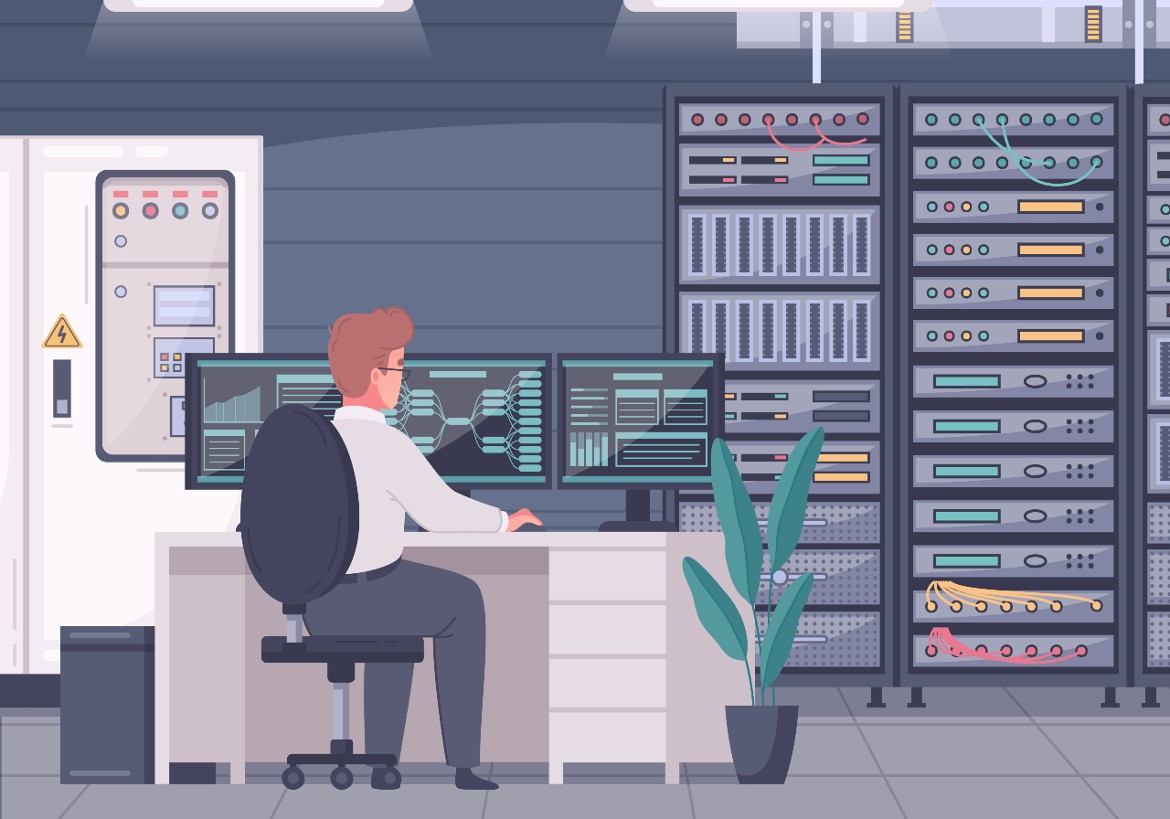
Must-Have Infrastructure Skills for IT Professionals Today
Posted on:
IT Jobs and Recruitment Insights
In today's rapidly evolving technological landscape, IT infrastructure plays a crucial role in the success of businesses across all industries. From network administration to system administration and virtualisation, IT professionals must possess a diverse skill set to manage and optimise infrastructure resources.
In the Irish market, where technology is accelerating with competition, having the right skills can make all the difference. In this blog I will explore the essential infrastructure skills that IT professionals should strive to possess in Ireland's IT sector today. This blog should not be used as a guideline as to what someone exactly needs to succeed in today's market but as a rough outline for what one should strive for going forward. As a recruiter, I see changes all the time in the IT market, and tech stacks differ no matter where you apply. Discover what you enjoy, dive into that field, and don’t hesitate to take risks and learn new skills. Now, let's explore some key areas you should know about.
Network administration

This has been, and remains a cornerstone of IT infrastructure. Professionals in this field should have a solid understanding of networking concepts, protocols, and technologies. From configuring routers and switches to troubleshooting connectivity issues, network administrators are responsible for ensuring that an organisation's network operates smoothly and securely.
In Ireland's IT market, proficiency in both traditional networking and emerging technologies such as software-defined networking (SDN) and cloud networking is highly sought after. Familiarity with one or more networking tools and protocols like TCP/IP, DNS, DHCP, and VLANs can be important.
Additionally, with the growing cybersecurity threats, I am seeing a large proportion of companies seeking expertise in network security, including firewalls, intrusion detection systems, and VPNs. If this is an area you are in or up-skilling in, you have the right idea!
System administration
An area in which I have seen no shortage of jobs over the last few months is system administration. In companies, they are tasked with managing the operation, maintenance, and security of an organisation's servers and associated hardware and software. In Ireland, where many businesses rely on complex IT infrastructures, system administrators play an important role in ensuring that servers remain operational.
If this is an area you are looking to move into or are interested in, then having proficiency in operating systems such as Linux and Windows will be important for you. You will need scripting skills, using languages like PowerShell, Bash, or Python, to automate tasks and streamline operations. A very popular one I have seen on the market and what a lot of companies go to is Python. But having knowledge of each would go a long way.
Moreover, system administrators must stay updated on the latest trends and best practices in server management, including containerisation with tools like Docker and Kubernetes, as well as cloud computing platforms like AWS, Azure, and Google Cloud. If this seems a bit overwhelming, it’s okay, a lot of technologies are being listed but the good thing is, you don’t need to be an expert in all of them. Picking and choosing is your best approach. Studying the market and seeing what are the most popular technologies right now should be something you do regularly. This will help you keep up to date and you can up-skill if needed.
One trend I am seeing a lot in Ireland is many companies use AWS as a cloud provider. If you are adept with this technology right now, you will have a lot of companies to pick from in your job search. This may change in a few years if Azure picks up, or GCP does. FYI, recruiters need to be aware of these things at all times, so, if you’re ever stuck, always reach out.
Server virtualisation

Continuing on from before, knowledge of server virtualisation technologies is valuable, as virtualisation has become integral to modern infrastructure deployments. It enables IT professionals and companies to create virtual instances of servers, storage, and networks, optimising resource utilisation and improving scalability. In Ireland, where businesses are increasingly adopting virtualisation to reduce costs and enhance efficiency, virtualisation technologies are essential. IT professionals should strive to understand one or more hypervisor platforms such as VMware ESXi, Microsoft Hyper-V, and KVM.
In the last 10 years, cloud computing has revolutionised the way businesses approach IT infrastructure, offering scalability, flexibility, and cost-efficiency. In Ireland, where many organisations are migrating their workloads to the cloud, this is an area I would implore everyone to upskill in. As mentioned earlier, you should strive to have hands-on experience with some leading cloud platforms such as Amazon Web Services (AWS), Microsoft Azure, and Google Cloud Platform (GCP). Some areas within cloud computing that you will come across are cloud architecture design, cloud migration, and cloud security. I have seen that they are particularly sought after as businesses seek to leverage the full potential of the cloud while ensuring data protection and compliance.
Automation
As you can guess in this day and age, automation is a key driver of efficiency and agility in IT infrastructure management. Tools such as Ansible, Puppet, and Chef are being used to provision and configure infrastructure resources. So, having practical experience with at least one will be important for you going forward. Furthermore, familiarity with DevOps practices is essential for streamlining the development and deployment of software applications. Professionals should understand concepts like continuous integration, continuous delivery, and infrastructure as code (IaC). Especially if this is an area that interests you. I have seen many Infrastructure engineers and System Administrators make the leap to DevOps or Site Reliability Engineering. A lot of the technologies and responsibilities will go hand-in-hand. And to add to this, it is an ever-growing area of Software Development/Infrastructure.
In conclusion, it is important to remember that you probably won’t be an expert in everything. Some of the best engineers I have come across are only experts in one thing. And I shouldn’t say only, because that is enough. If there is one thing I would like you to take away from this blog, it’s to do your research on the market, talk to recruiters, explore the trends in each technology, figure out which technologies/projects excite you, up-skill, and get experience with them. It's a journey to venture on. All you can do is make the most informed decisions you can based on what you know, and the more you know, the better off you may be. And at GemPool Recruitment, we have the consultants to help you get there. So, never be afraid to reach out.






